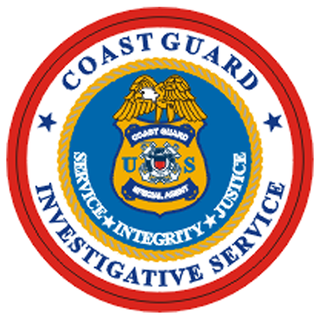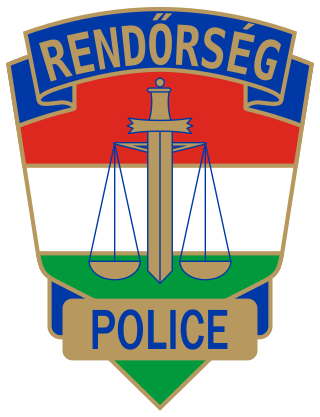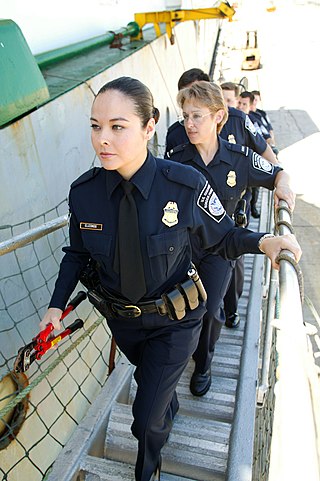
Law enforcement in India is imperative to keeping justice and order in the nation. Indian law is enforced by a number of agencies. Unlike many federal nations, the constitution of India delegates the maintenance of law and order primarily to the states and territories.

Law enforcement in Australia is one of the three major components of the country's justice system, along with courts and corrections. Law enforcement officers are employed by all three levels of government – federal, state/territory, and local.

Law enforcement in France has a long history dating back to AD 570 when night watch systems were commonplace. Policing is centralized at the national level. Recently, legislation has allowed local governments to hire their own police officers which are called the "police municipale".
A law enforcement officer (LEO), or peace officer in North American English, is a public-sector employee whose duties primarily involve the enforcement of laws. The phrase can include campaign disclosure specialists, local police officers, prosecutors, municipal law enforcement officers, health inspectors, SWAT officers, customs officers, lawyers, state troopers, federal agents, secret agents, special investigators, coast guards, border patrol officers, judges, district attorney, bounty hunters, gendarmerie officers, immigration officers, private investigators, court officers, probation officers, parole officers, arson investigators, auxiliary officers, animal control officers, game wardens, park rangers, county sheriff's deputies, constables, marshals, detention officers, correction officers, sworn campus police officers, militsiya officers and public safety officers. Security guards are not law enforcement officers, unless they have been granted powers to enforce particular laws, such as those accredited under a community safety accreditation scheme such as a security police officer.

The Customs and Excise Department (C&ED) is a government agency responsible for the protection of the Hong Kong Special Administrative Region against smuggling; the protection and collection of revenue on dutiable goods on behalf of the Hong Kong Government; the detection and deterrence of drug trafficking and abuse of controlled drugs; the protection of intellectual property rights; the protection of consumer interests; and the protection and facilitation of legitimate trade and upholding Hong Kong's trading integrity.

The Coast Guard Investigative Service (CGIS) is a division of the United States Coast Guard that investigates crimes where the U.S. Coast Guard has an interest. It is composed of civilian (GS-1811), active duty, reserve enlisted, and warrant officer special agents.

In Singapore, law enforcement is principally led by the Singapore Police Force (SPF), and supported by other agencies including the Singapore Prison Service, Central Narcotics Bureau, Corrupt Practices Investigation Bureau, Internal Security Department, Immigration and Checkpoints Authority, and Singapore Customs. Furthermore, some law enforcement powers may be exercised by non-government entities such as auxiliary police forces and security officers.

A border guard of a country is a national security agency that performs border security. Some of the national border guard agencies also perform coast guard and rescue service duties.

The Anti-Narcotics Force is a federal executive bureau of the Government of Pakistan, tasked with combating the narcotics smuggling and use within Pakistan. ANF works under the umbrella of Pakistan Army and Ministry of Narcotics Control (Pakistan) of which Shahzain Bugti is the minister since March 2022. Due to misconception on Section 4 of ANF ACT 1997, the force's head consisted of the active-duty general officer of Pakistan Army. Although the law prescribes that any competent person may be appointed as Director-General. Currently, a two-star Army Officer, Major general Muhammad Aniq Ur Rehman Malik is deputed as Director-General. The ANF also has sole responsibility for coordinating and pursuing Pakistan narcotics investigations abroad.
Law enforcement in Pakistan is one of the three main components of the criminal justice system of Pakistan, alongside the judiciary and the prisons. The country has a mix of federal, provincial and territorial police forces with both general and specialised functions, but the senior ranks of all the provincial forces and most of the federal ones are manned by members of the Police Service of Pakistan (PSP). The PSP is one of the most prestigious parts of the Central Superior Services, Pakistan's main civil service organisation. Federal law enforcement agencies are generally overseen by the Ministry of Interior of the Government of Pakistan, while provincial police forces are overseen by a department of the government of that province.

Law enforcement in Finland is the responsibility of several agencies. The Police of Finland, a national police agency, is responsible for most tasks. The two other main agencies are the Finnish Border Guard and the Finnish Customs. Examples of other agencies with limited policing powers are the Finnish Defence Forces, municipal parking inspectors and railway staff.

Law enforcement in Hungary is split among the Police and Border Guards, and the Customs and Excise Authority. Since 2006, the Police has been subject to the Ministry of Justice, when the Ministry of Interior was re-structured to deal with Municipalities and Regional Development. Due to Hungary's accession to the Schengen Treaty, the Police and Border Guards were merged into a single national corps, with the Border Guards becoming Police Officers. This merger took place in January 2008. The Customs and Excise Authority remained to be subject to the Ministry of Finance.

Sri Lanka Police is the civilian national police force of the Democratic Socialist Republic of Sri Lanka. The police force is responsible for enforcing criminal and traffic law, enhancing public safety, maintaining order and keeping the peace throughout Sri Lanka. The police force consists of 43 Territorial Divisions, 67 Functional Divisions, 432 Police Stations with more than 84,000 people. The professional head of the police is the Inspector General of Police who reports to the Minister of Law and Order as well as the National Police Commission. The current Inspector General of Police is C.D. Wickramaratna.

In many countries, particularly those with a federal system of government, there may be several law enforcement agencies, police or police-like organizations, each serving different levels of government and enforcing different subsets of the applicable law.

The federal government of the United States empowers a wide range of federal law enforcement agencies to maintain law and public order related to matters affecting the country as a whole.
A specialist law enforcement agency is a law enforcement agency which specialises in the types of laws it enforces, or types of activities it undertakes, or geography it enforces laws in, or these in combination.

The Sri Lanka Coast Guard (SLCG) is a Sri Lankan non-ministerial government department tasked with coast guard duties within the territorial waters of Sri Lanka. It comes under the purview of the Ministry of Defence and its members are all naval personnel. The current Director General of the SLCG is Rear Admiral Pujitha Vithana
Crime is a present in various forms in Sri Lanka. Crime is segmented into two broad classifications: grave crimes and minor crimes. Exceptions can be made for criminal liability on the grounds of duress, insanity, intoxication, necessity, and private defense. Punishment for crime includes several options: community service, fine, forfeiture of property, imprisonment, institutional treatment, probation, suspended sentence, and death; while the death penalty is available in the country, there have been no executions since 1976. Corporal punishments (whipping) has been abolished as of 2005.














